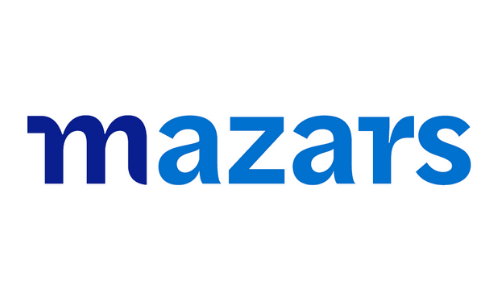Responsible banking practices

- 37 banks located in Africa, the Americas, Asia-Pacific and Europe were assessed to identify best practices and trends in the way they manage risks related to climate change, and wider social and governance issues
- Banks have made progress in all dimensions of sustainable finance assessed since the 2020 edition of the same study
- The average percentage of banks developing a responsible product offering is 82% - compared to 47% last year
Mazars, the international tax, audit and consulting firm, has launched the 2021 edition of its study of benchmarking "Responsible practices in banking". The global study evaluates sustainability practices at 37 of the world's largest banks[1] located in Europe, Africa, the Americas and Asia-Pacific.
The analysis shows that the banking sector widely recognizes the opportunities and risks related to sustainability issues. However, the full implementation of practices designed to achieve sustainable objectives is still in the development phase.
Luís Gaspar, Managing Partner of Mazars in Portugal, confirms that this is also a trend in the domestic market: "We are facing a transformation of financial culture as these kinds of concerns become increasingly urgent. The expectation is that all organizations, particularly those that have a significant impact on the economy or an activity of public interest, will implement processes that ensure respect for environmental and social issues. This is visible in the financial sector clients we work with in Portugal and becomes something to consider when we consider their needs and the solutions to be provided."
Overall conclusions: banks have made significant progress in sustainability
The overall analysis shows that most of the banks evaluated:
- They promote culture of sustainability and allocate responsibility for this matter to more senior functions. On average, 74% of banks have already implemented measures to promote a culture of sustainability and adapted their governance structures, compared to 49% the previous year. However, the integration of ESG competencies (Environmental, Social, Governance) in the selection of the composition of governments and the measurement of the performance of ESG criteria in the definition of remuneration remain infrequent practices.
- They make a commitment to SMART sustainability objectiveswith a prevalence of environment-related targets. Methodologies for strategic alignment with the Paris Agreement have gained momentum: around 51% of banks are testing the PACTA methodology to align their financial portfolios with the objectives of the Paris Agreement. However, this has not yet been reflected in the banks' official commitments to climate neutrality.
- They have more advanced risk management practices for climate risks than for broader ESG risks - with most climate scenario analysis resources built in. However, it remains a challenge to measure the financial impact of climate change on banks due to the lack of quantitative information. Only 22% of banks provide quantitative data on the materiality of climate risks.
- They implement sustainability reportsThe CDP and TCFD recommendations are the most common. In terms of metrics and targets, GHG emissions are the most reported. One of the main reporting challenges remains Scope 3 GHG emissions; only 11% of banks disclose information related to their financing activities.
- They have a more mature business offer than the offer for private customers, and climate and environmental products are more prevalent than economic and social products. For example, 78% of the banks have developed a green bondswhile only 32% have developed green products for private customers. Comparing banks' offerings remains a challenge due to the lack of standardized reporting structures.
Leila Kamdem-Fotso, Partner at Mazars, says"There is no doubt that banks are making their practices more sustainable and that they have been making progress since our first study. The results are encouraging, but they also reveal some work to be done. Banks need to implement relevant practices, particularly those related to climate risk management and disclosures, if they are to meet sustainability objectives. One way to do this is to improve methodologies and better quantify the climate-related impacts incurred in their reports. Positive developments in this area can enable banks to play their full part in shaping a more sustainable future for the global economy."
Improvements in all areas: 2021 vs 2020
Comparing the recent results of the study "Responsible practices in banking" with our own 2020 assessmentthe banks have made progress related to sustainable finance in all the dimensions analyzed:
- The average percentage of banks that have developed a responsible product offering is now 82%, compared to 47% the previous year.
- Banks that promoted a culture of sustainability and updated their governance structures accordingly increased by half (51%), although there was a similar increase (45%) in the percentage of banks that aligned their disclosures with ESG reporting standards.
- There are clear gaps in areas such as the incorporation of ESG and climate criteria into risk management frameworks and the implementation of sustainability strategies (increase from 22% and 20%, respectively).
Methodology
Mazars' "Responsible Banking Practices" benchmark study evaluates the sustainability practices of a sample of 37 banks. We focused our analysis on banks located in Africa, the Americas, Asia-Pacific and Europe. The banks selected are the largest in their geographies according to total assets.
Most of the selected banks have demonstrated a significant interest in sustainability and climate change by implementing frameworks, participating in the United Nations Environment Programme Finance Initiative (UNEP FI) and/or committing to the UNEP FI Principles for Responsible Banking (PRB). This study builds on previous Mazars reports published in 2020: "Responsible banking practices, benchmark study" e "How banks are responding to the financial risks of climate change".
About Mazars
Mazars is an international, integrated partnership specializing in audit, accounting, consulting, tax and legal services*. It operates in more than 90 countries and territories around the world and draws on the expertise of more than 42,000 professionals - 26,000+ in the Mazars integrated partnership and 16,000+ via the Mazars North America Alliance - to support clients of all sizes at every stage of their development.
https://www.mazars.pt/ | https://pt.linkedin.com/company/mazars-portugal | https://pt-pt.facebook.com/MazarsPortugal
[1] The banks selected are the largest in their respective geographies, based on total assets.

